|

(Red Hen Press, 2005, 88pp. ISBN: 1-59709-014-X)
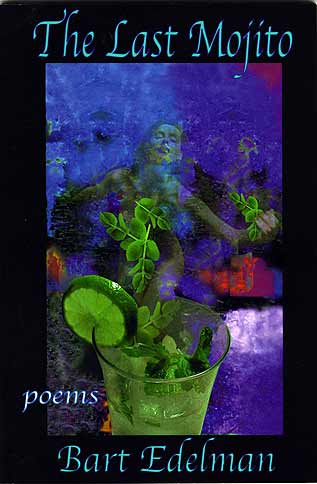 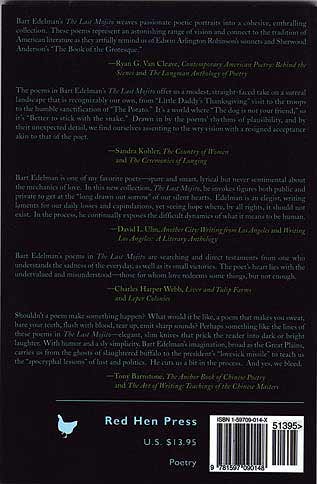
l
My Song
Aunt Em
Enough
Poetry Editors
Forever Katz
Survival
Bed and Brimstone
Little Daddy’s Thanksgiving
At the Movies
Buffalo Dreams
Knife in the Air
Stacy Tracy
Pub Crawl
The Dead Rise Twice
The Professor of Floors
Meltdown
The Dog
Forbidden City
Conscience
Excuses (for English 103)
A Bowl, A Plate, A Saucer
Simon Sez
Tipsy
Lullaby
Trouble
Static Street
Noah’s Thirst
Another Good Woman
Coat of Sorrow
The Rowdy Boys
Ambiguous Fish
Had You Not
The Potato
Story of His Life
Betrayal
A History of Civilization
The University of Perversity
Nausea
Jamie Beach
Pecking Order
Rendezvous
I Killed the Poet
The Virtue of Sin
The Other Man
Fire
Mr. Rotundo
Monkey Town
The Woman Who Lived in a Shoe
Kitchen of Love
The Last Mojito
SAMPLE POEMS
The Dead Rise Twice
Poetry Editors
The Rowdy Boys
The poems in The Last Mojito were written between 2000 and 2004. The six distinct sections of the book—the ingredients of the infamous mojito (mint, sugar, lime, rum, ice, and club soda)—were chosen, initially, to impart a rather playful frame to the collection’s content. Quite a few of the poems, of course, reveal the presence of alcohol. In almost all cases, more often than not, the mere mention of spirits or booze is employed as a continual theme, helping to open up friendships or any relationships in a way that bring the narrators closer towards a supposed set of insights gained from a glass that’s no longer filled with what might pass for liquid truth. Individual poems such as “Enough,” “Pub Crawl,” “Forbidden City,” “Story of His Life,” and “I Killed the Poet,” explore both probable and improbable situations the speakers face on the road to self-discovery.
The epigram chosen from J.R. Salamanca’s torrentially beautiful novel, Lilith, provides a key to the volume’s ultimate direction that explores the notion that no matter what we do, no matter how hard we attempt it, our hunger for perfection is always destined to leave us empty, perpetually desiring a world, a life, a vision, we find difficult, at best, to achieve in the temporal space we inhabit. Like a tumbler or any vessel which regularly needs refilling, we tip the bottle upside down in an attempt to challenge ourselves to drink even though we may abhor the taste (“Tipsy”). And there is the lasting impression—the itinerant hope—that with simply another drink, perhaps even another mojito, if you please, the future might be clearer, certainly less cloudy, around the next corner or the empty barstool, and the daily “Pecking Order” easier to justify, sober or not.
Is it any wonder then that a variety of speakers in The Last Mojito remain stuck in their boots, unable to advance or progress? Yet other characters somehow manage to take that lonely step into a wilderness they embrace, often regardless of the outcome and potential danger (“The Virtue of Sin”). It’s this will to risk limb and life for a chance to spy heaven or, at least, engage in happiness that both thrills and provokes this writer. Our dilemma, as humans—how and why past, present, and future blend to shape our lives—is any mixologist’s most formidable ingredient. Each of us carries a drink around with us, whether it has a name or not. And while it’s the case that some are more potent than others, the elixir we seek may or may not be in the glass we so intently hold before “The Last Mojito” is served.

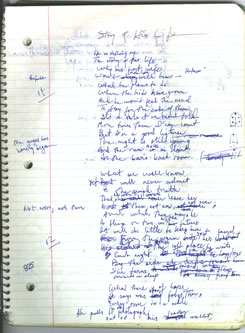 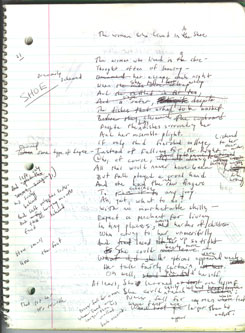 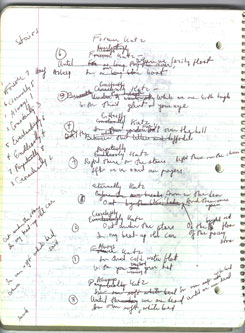

"Bart Edelman's The Last Mojito weaves passionate poetic portraits into a cohesive, enthralling collection. These poems represent an astonishing range of vision and connect to the tradition of American literature as they artfully remind us of Edwin Arlington Robinson's sonnets and Sherwood Anderson's 'The Book of the Grotesque.'”
—Ryan G. Van Cleave, editor, Contemporary American Poetry: Behind the Scenes and The Longman Anthology of Poetry
"The poems in Bart Edelman's The Last Mojito offer us a modest, straight-faced take on a surreal landscape that is recognizably our own, from “Little Daddy's Thanksgiving" visit to the troops to the humble sanctification of “The Potato.” It's a world where “The dog is not your friend," so it's “Better to stick with the snake." Drawn in by the poems' rhythms of plausibility, and by their unexpected detail, we find ourselves assenting to the wry vision with a resigned acceptance akin to that of the poet."
—Sandra Kohler, The Country of Women and The Ceremonies of Longing
"Bart Edelman is one of my favorite poets -- spare and smart, lyrical but never sentimental about the mechanics of love. In this new collection, The Last Mojito, he invokes figures both public and private to get at the “long drawn out sorrow" of our silent hearts. Edelman is an elegist, writing laments for our daily losses and capitulations, yet seeing hope where, by all rights, it should not exist. In the process, he continually exposes the difficult dynamics of what it means to be human."
—David L. Ulin, editor, Another City: Writing from Los Angeles and Writing Los Angeles: A Literary Anthology
"Bart Edelman's poems in The Last Mojito are searching and direct testaments from one who understands the sadness of the everyday, as well as its small victories. The poet's heart lies with the undervalued and misunderstood -- those for whom love redeems some things, but not enough. Doesn't that sound, reader, a bit like you and me?"
—Charles Harper Webb, Liver and Tulip Farms and Leper Colonies
"Shouldn’t a poem make something happen? What would it be like, a poem that makes you sweat, bare your teeth, flush with blood, tear up, emit sharp sounds? Perhaps something like the lines of these poems in The Last Mojito -- elegant, slim knives that prick the reader into dark or bright laughter. With humor and a sly simplicity, Bart Edelman’s imagination, broad as the Great Plains, carries us from the ghosts of slaughtered buffalo to the president’s 'lovesick missile' to teach us the “apocryphal lessons” of lust and politics. He cuts us a bit in the process. And yes, we bleed."
—Tony Barnstone, editor, The Anchor Book of Chinese Poetry and The Art of Writing: Teachings of the Chinese Masters
|

